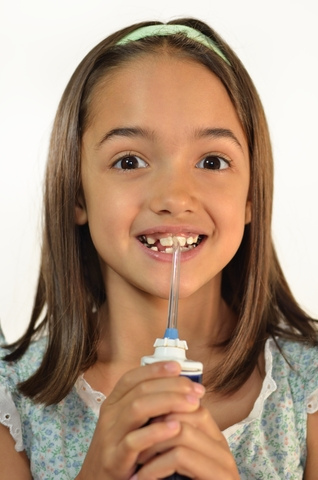January 10th, 2018

Dental floss is similar to a lot of products that depend mainly on the consumer’s preference. Fact is, floss comes in a wide variety of flavors, coatings, and other variations, but all types of floss essentially do the same thing. After all, that is what is most important: that the dental floss you buy is functional—cleaning the areas in between your teeth. If you want to know what the best dental floss is, the answer is the kind that enables you to successfully and regularly clean those areas. So to help you find the right type of floss for you, here are some options.
Flavored Dental Floss
Many people that floss prefer a flavored dental floss because it freshens their breath even more than unscented floss. The latter can also take on the smells associated with bacteria in your mouth. And we all know how bad that can be. So, if flavored dental floss is what you prefer, and it allows you to floss your teeth regularly, then it is automatically best for your mouth.
Flossers
There are also products on the market called flossers, which usually consist of a plastic instrument with strung floss and a pick on the opposite end. This option can be both effective at cleaning the areas in between your teeth and scraping off plaque. These flossers also come flavored in mint and various other varieties.
Gentle Dental Floss
Some people find that typical dental floss is too harsh on their gums. For that reason some companies make floss with soft coatings that are less abrasive on the gums. For the most part these types of floss are just as effective as regular floss, and for those people that require a more sensitive approach to flossing, especially when just starting out, this is the best option.
Of the aforementioned options, it is difficult to name an absolute best type of floss. However, Dr. Rubin and our team say that the type of floss that works best for you, giving you the greatest chance of succeeding at regular flossing, is the best. For more information on floss, contact our Far Rockaway office.
January 4th, 2018

Sports are great for children for a variety of reasons. Children can develop their motor skills, learn how to solve conflicts and work together, and develop their work ethics. As a parent, you may recognize the benefits of sports, but also naturally worry about your child’s health and safety. Your job goes beyond providing a water bottle and making sure your child follows the rules of the game.
Although you may not think of your child’s teeth first when you think about sports, accidents can happen that affect your children’s teeth. A stray hockey stick, an errant basketball, or a misguided dive after a volleyball are examples of ways a child could lose a tooth. In fact, studies show that young athletes lose more than three million teeth each year.
Becoming a Better Athlete to Protect Teeth
Becoming a better athlete involves refining skills, learning the rules of the game, and being a good sport. These components are not just about winning. They are also about safety. Young athletes who are better ball-handlers and who are careful to avoid fouls and penalties are less likely to have harmful contact with the ball, teammates, or opponents. Children who are better roller-bladers are less likely to take a face plant into the blacktop, and more likely to save their teeth. Being a good sport and avoiding unnecessary contact is one way to protect teeth.
Proper Protective Equipment for Teeth
If your child is in a sport that poses a high threat to teeth, it is essential for your child to wear a mouthguard. Mouthguards fit your child’s mouth and consist of soft plastic. Dr. Rubin can custom fit a mouthguard if generic ones are uncomfortable. While children may resist wearing a mouthguard initially, your persistence in insisting that they wear it should be enough to convince them. A helmet or face mask provides additional protection.
While prevention is best, rapid treatment can improve the situation if your child does happen to lose a tooth during sports. Rapid implantation can work in about ten percent of cases. To learn about ways to save a lost tooth, contact our Far Rockaway office.
December 27th, 2017

We’ve been celebrating the new year for a really, really long time. It goes way back, but it started formally in 1582, when Pope George XIII made January 1st the official holiday for ushering in the new year. The idea was to yell, cheer, and blow horns to scare away all the evil spirits of the previous year with the hope that the new one would be filled with happiness and opportunity.
While scaring away evil spirits isn’t what’s on our mind these days, we still ring in the New Year by cheering and hollering with friends and family. It’s a time to set new goals, refocus on old ones, and look forward to all the surprises the coming year will bring.
Whether you’re saying hello to the New Year snuggled up at home on your couch in the Far Rockaway area or by gathering your friends for a social celebration, here are some tips to help ensure you welcome this new chapter with a smile.
Tips for a great New Year’s Eve celebration from Rubin Orthodontics
- Stay safe. This one’s vital, because nothing puts a damper on your party like an emergency trip to the hospital. Stay responsible and try to plan ahead, whether that means taking a taxi, staying with a friend, or recruiting a designated driver. Do what you have to do to keep yourself and everyone around you safe.
- Spend time with the people you love most. The way we see it, the whole point of the holiday season is to cherish your family and friends. Regardless of what you’re doing, make sure there’s something for everyone. It’s essential to do something the whole group will enjoy!
- Smile! Whether you get all dressed to go out or have a quiet gathering with family and friends, make sure you accessorize with a smile. There’s always something to smile about!
We can all agree that change can be scary sometimes, but ringing in the New Year is an observance we all welcome with open arms. We hope you’ll enjoy this transitional holiday in a fun, healthy, and safe way. You have endless possibilities ahead of you!
From Dr. Rubin, have a fantastic New Year!
December 20th, 2017

Water picks, sometimes called “oral irrigators,” make an excellent addition to your regular home care regimen of brushing and flossing. Especially helpful to those who suffer from periodontal disease and those patients of ours undergoing orthodontic treatment with full-bracketed braces, water picks use powerful tiny bursts of water to dislodge food scraps, bacteria, and other debris nestled in the crevices of your mouth. Children undergoing orthodontic treatment may find using a water pick is beneficial if their toothbrush bristles tend to get caught on their wires or brackets.
When you use a water pick, you’re not only dislodging any particles or debris and bacteria you might have missed when brushing, you are also gently massaging the gums, which helps promote blood flow in the gums and keeps them healthy. While water picks are an excellent addition to your daily fight against gingivitis and other periodontal diseases, they are incapable of fully removing plaque, which is why Dr. Rubin and our team at Rubin Orthodontics want to remind you to keep brushing and flossing every day.
If you have sensitive teeth or gums and find it uncomfortable to floss daily, water picks are a good alternative to reduce discomfort while effectively cleaning between teeth. Diabetics sometimes prefer water picks to flossing because they don't cause bleeding of the gums, which can be a problem with floss. If you have a permanent bridge, crowns, or other dental restoration, you may find that a water pick helps you keep the area around the restorations clean.
So how do you choose the right water pick?
Water picks are available for home or portable use. The home versions tend to be larger and use standard electrical outlets, while portable models use batteries. Aside from the size difference, they work in the same manner, both using pulsating water streams. A more crucial difference between water picks is the ability to adjust the pressure. Most home models will let you choose from several pressure settings, depending on how sensitive your teeth and gums are. Most portable models have only one pressure setting. If you want to use mouthwash or a dental rinse in your water pick, check the label first; some models suggest using water only.
Please give us a call at our Far Rockaway office if you have any questions about water picks, or ask Dr. Rubin during your next visit!





